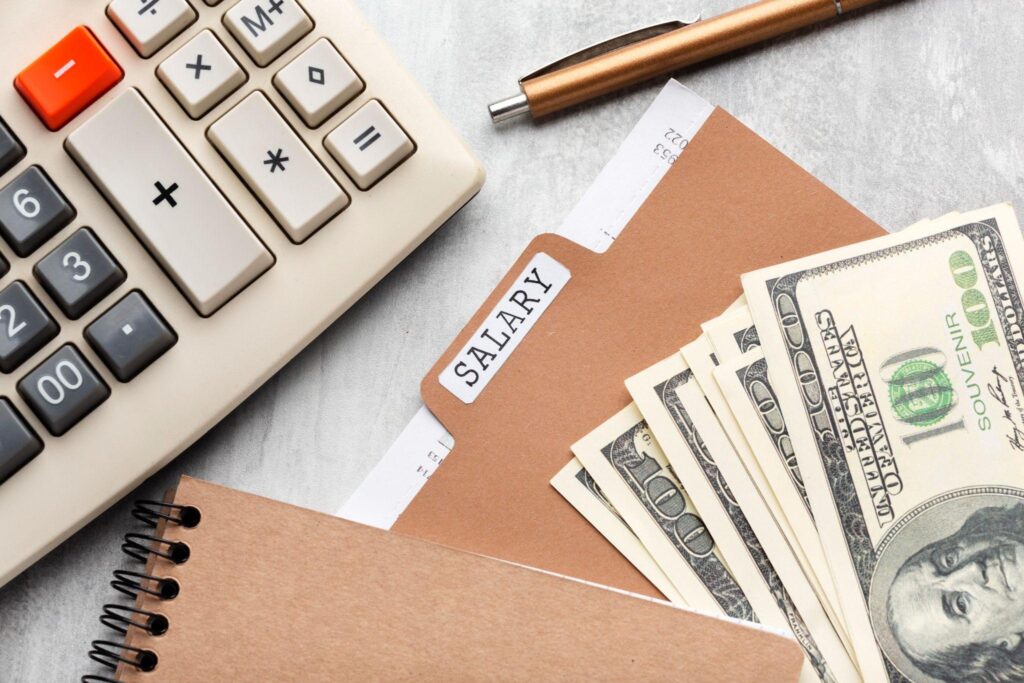How to Stop Wage Garnishment: Proactive Steps and Relief
Every year, countless employees find a portion of their hard-earned wages unexpectedly sliced off their monthly income, a bitter outcome of debts, or back taxes piling up unnoticed. This phenomenon, known as wage garnishment, isn’t just a minor inconvenience—it can significantly strain one’s financial situation and disrupt plans for future security.
Imagine working overtime, making sacrifices, only to see a chunk of your income diverted elsewhere before it even reaches you. According to one study, 1 in 100 workers is subject to garnishment.
However, ignoring or being unaware of financial obligations can lead to consequences more severe than many anticipate. Not only does wage garnishment strain monthly budgets, but it also harms credit scores and reputations.
The good news? You don’t have to remain passive in this narrative. Understanding what wage garnishment is and the paths available to navigate it can help you reclaim control.
This guide is designed to equip you with proactive steps and tax relief solutions to prevent and address wage garnishments, empowering you to steer your financial future confidently.
You may also like: Navigating Tax Relief: Understanding Its Importance, Eligibility, and Implications
Understanding Wage Garnishment
Wage garnishment is a legal process that allows creditors to claim a portion of your earnings to pay off a debt you owe. But what does it entail, and how does it impact your daily life?
Defining Wage Garnishment
Wage garnishment is a court-sanctioned method allowing a creditor to directly take money from a debtor’s paycheck until a debt is settled. It’s not just a simple debt collection tool but a stringent measure often reserved for persistent unpaid debts.
Types of Garnishments
Various debts can lead to wage garnishments, with each having its distinct characteristics and protocols. From family obligations like child support to unpaid federal student loans, the reasons behind a garnishment can greatly vary.
It’s crucial to identify the nature of your garnishment to navigate and potentially mitigate its impact. Here are the most common types of wage garnishments:
- Child Support and Alimony: These garnishments prioritize family needs, ensuring children and ex-spouses are financially supported.
- Tax Debts: If you owe back taxes, federal and state agencies might garnish wages without a court order.
- Student Loans: Owing on federal student loans can lead to garnishments; however, they’re usually capped at a percentage of disposable income.
- Consumer Debts: These encompass medical bills, credit cards, and other personal debts. A creditor usually requires a court order to begin garnishing for these types of debts.
The Consequences of Garnishment
While wage garnishment might seem like just a deduction from your paycheck, it bears broader implications than meets the eye. Beyond the immediate financial strain, garnishment can ripple through aspects of your personal and professional life. Recognizing these consequences can aid in shaping a proactive response.
- Financial Strain: With a reduced paycheck, meeting monthly expenses and maintaining a stable financial situation becomes challenging.
- Employer Involvement: While employers cannot fire you due to a single garnishment, multiple garnishments might strain your professional relationships.
- Credit Impact: Having your wages garnished can significantly impact your credit score, making future financial endeavors more challenging.
In essence, wage garnishment is not just a process—it’s a significant life event. Ignoring it can compound your troubles, but understanding it offers a foundation to navigate it, seek relief, and regain control of one’s financial health.
You may also like: Debt Management Methods: Successful Strategies for Your Debt
Proactive Steps to Take Before Wage Garnishment Begins
Facing wage garnishment is not just about the immediate financial pinch; it can also affect your credit, your reputation, and your peace of mind. Before your wages are garnished, there are steps you can take to navigate the situation, potentially preventing it from reaching that point.
Here, we’ll provide proactive measures, from communicating with creditors to understanding legal pathways, to shield your income from garnishment.
Open Communication with Your Creditor
In the early stages of a debt situation, creditors might seem like adversaries. However, establishing a dialogue with them can offer solutions, possibly helping to stop wage garnishment before it commences.
Directly engaging with creditors can shed light on the original debt, offering insights and potentially leading to a more manageable payment plan. In addition, creditors often prefer to avoid the garnishment process, which can be costly and time-consuming.
Moreover, demonstrating a willingness to address the debt can lead to negotiations for lump sum payments or adjusted payment terms. Nevertheless, ignoring communications can lead to a default judgment, but timely responses can delay or even stop garnishments.
Seek Debt Counseling and Financial Planning
Mounting debt can be a source of anxiety. But with the guidance of professionals, you can carve a path through the financial maze and potentially avoid wage garnishments.
To start, credit counselors specialize in helping individuals navigate their financial hardships, offering advice on managing debts, stopping wage garnishment, and understanding the debt collection toolset used by creditors. A clear understanding of your disposable income, juxtaposed with your living expenses, allows these professionals to draft a payment plan tailored to your needs.
Most importantly, they can also educate you on your rights regarding debt collectors, ensuring you’re not subjected to aggressive or illegal collection tactics.
Evaluate Legal Options
When it feels like the weight of the world is on your shoulders due to debt payments and potential legal actions by creditors, it’s crucial to know that there are protective measures available to you. Here are a few options you can take when you receive wage garnishment orders:
- Bankruptcy filing: Declaring bankruptcy isn’t a decision to take lightly. However, in certain situations, it offers relief. Filing for bankruptcy can enact an automatic stay, halting most garnishments and other collection efforts. It’s advisable to consult a bankruptcy attorney to assess the implications.
- Claim of exemption: Different jurisdictions provide varied protection levels against garnishments. If a significant portion of your income goes towards essential living expenses, certain amounts might be exempt from garnishment.
- Challenge the garnishment: Every debtor has the right to due process. If you suspect errors in the garnishment order or believe the court order was misapplied, you can file a claim to contest it.
Prioritize and Allocate Funds
With the looming threat of wage garnishments, understanding your financial landscape becomes paramount. Prioritizing and allocating your funds correctly can be the shield that protects your hard-earned money. These tips should help you prioritize:
- Essentials like housing, utilities, and food should be prioritized, ensuring you and your family’s well-being.
- Certain debts, like child support or student loans, have stringent collection practices. It’s crucial to allocate funds for such high-priority debts proactively.
- Financial safety nets, like a dedicated savings account, can provide a buffer, ensuring essential bills are paid even if garnishments occur.
With these proactive steps and a clear understanding of your rights and options, you can better navigate the maze of debt collection and hopefully prevent wage garnishment from reaching your paycheck.
You may also like: How to Pay Off Debt: 10 Ways to Kill Debt with a Low Income
How to Stop a Wage Garnishment Once It Begins
When you notice that a wage garnishment has been put into effect on your income, it can feel overwhelming. However, there are steps you can take to potentially stop or reduce it, even after the process has begun.
In this section, we’ll explore actionable measures you can take to regain control over your finances.
File an Objection with the Court
Filing an objection with the court can halt the garnishment process. This is your chance to present your case and explain your financial situation.
To start, reach out to the court that issued the wage garnishment order. Explain any financial hardship you’re experiencing due to the garnishment. Most importantly, present evidence of your living expenses and disposable income.
Negotiate Directly with the Creditor
It’s never too late to speak with the creditor or debt collector. They might be open to a more manageable payment plan or even a lump sum payment.
Establish a line of communication with the original lender or debt collector. Next, discuss the possibility of reducing the debt or setting up a new payment plan. Finally, highlight the difficulty the garnishment is causing on your financial situation.
Consult a Bankruptcy Attorney
Bankruptcy filing might seem drastic, but it can effectively stop wage garnishment immediately. The bankruptcy process invokes an automatic stay that halts most collection efforts.
Understand the different types of bankruptcy and which might be suitable for your situation.
Consulting an attorney who specializes with bankruptcy can provide clarity on how to proceed.
Note that certain debts like child support and back taxes might not be affected.
Seek Exemptions
Certain forms of income, such as social security, might be exempt from garnishment. You might be able to file a claim to protect these funds.
But first, understand your state and federal law regarding exempt incomes. Only then can you file a claim of exemption with the court. Most of all, remember to provide evidence to back up your claim.
Address the Original Debt
Sometimes the best way to stop the wage garnishment is to address the original debt directly. The first step is to understand the total outstanding debt and the terms associated with it.
Next, work on a payment plan or consider obtaining a new loan to cover the debt. Finally, speak with a credit counselor for advice on managing your debt.
It’s crucial to act quickly once you notice your wages garnished. The sooner you take action, the higher the chance you can stop a wage garnishment or at least negotiate better terms. Remember, the goal is not just to stop the garnishment, but to work toward a sustainable solution for your financial well-being.
Conclusion
Wage garnishment is more than just a dent in your paycheck. It’s a wake-up call urging you to act quickly and address the root cause—unresolved debts. Knowing how to stop wage garnishment, communicating with creditors, and utilizing resources like tax relief solutions can help you overcome the challenges it poses.
And remember, while tackling wage garnishment might seem a huge hurdle, with determination, the right resources, and professional assistance, you too can achieve a path to financial stability.
Sponsored Advertising Content:
Advertorial or Sponsorship User published Content does not represent the views of the Company or any individual associated with the Company, and we do not control this Content. In no event shall you represent or suggest, directly or indirectly, the Company's endorsement of user published Content.
The company does not vouch for the accuracy or credibility of any user published Content on our Website and does not take any responsibility or assume any liability for any actions you may take as a result of reading user published Content on our Website.
Through your use of the Website and Services, you may be exposed to Content that you may find offensive, objectionable, harmful, inaccurate, or deceptive.
By using our Website, you assume all associated risks.This Website contains hyperlinks to other websites controlled by third parties. These links are provided solely as a convenience to you and do not imply endorsement by the Company of, or any affiliation with, or endorsement by, the owner of the linked website.
Company is not responsible for the contents or use of any linked website, or any consequence of making the link.
This content is provided by New Start Advantage LLC through a licensed media partnership with Inquirer.net. Inquirer.net does not endorse or verify partner content. All information is for educational purposes only and does not constitute financial advice. Offers and terms may change without notice.






